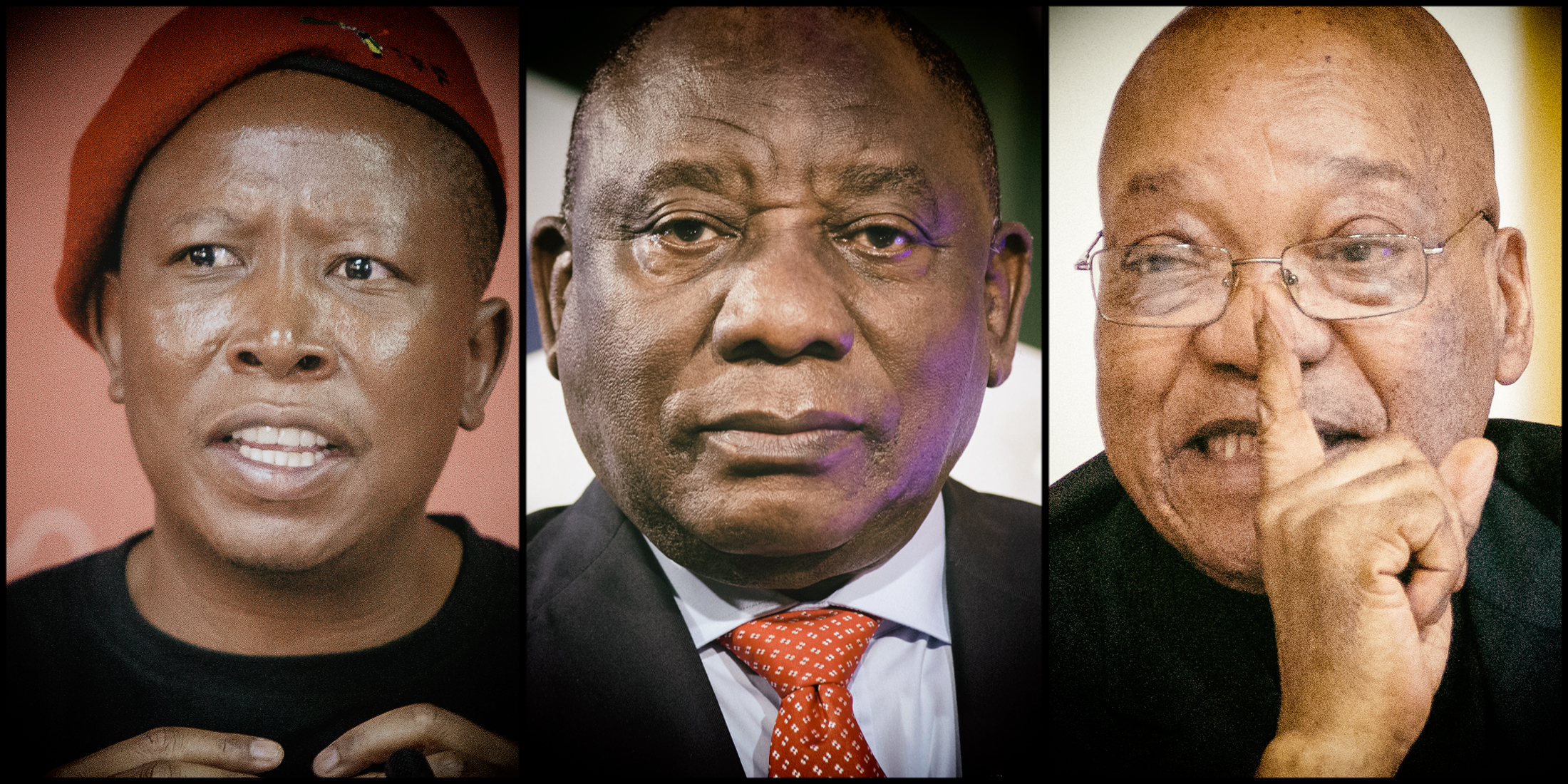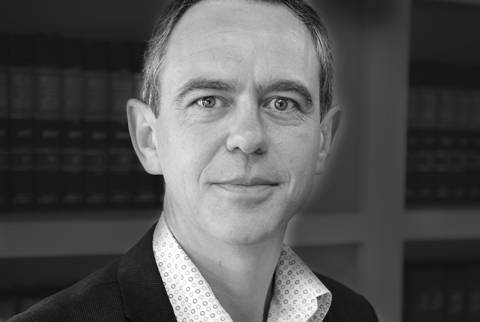Once in a while, I receive a barrage of emails from somebody who claims that a judge ruled against them in a matter because the judge was bribed, criminally negligent or conflicted in some other way. These emails often contain thousands of pages of attachments purporting to prove the fantastical claims made by the complainant. So far, they never have. But, to be honest, I do not always read through all the attachments because the emails tend to be incoherent, and the sender not sufficiently in touch with reality, to warrant any investment of time.
This does not mean there is no reason to worry that individual judges may have been corrupted or may have acted in a dishonest manner. Most notably, the Zondo Commission heard a few weeks ago that there is very strong circumstantial evidence that the State Security Agency (SSA) had arranged for cash to be handed to an unnamed judge to advance the factional interest of those aligned to former president Jacob Zuma.
It is pivotal that these allegations are properly and speedily investigated and that the judge be removed from office if the allegation is true. (The relevant parties should also be prosecuted if sufficient evidence exists to secure a conviction.)
But over the years, the Judicial Service Commission (JSC) has also been required to deal with serious (but specific) allegations levelled at a handful of other judges allegedly involved in dishonest or corrupt practices.
In 2006, Judge Ismail Hussain resigned from office after the JSC decided that the charge of gross misconduct must be preferred against him. The charge related to a complaint that while acting as an arbitrator after his judicial appointment, he received and misused monies intended to be dealt with in the arbitration award.
At present, Judge Tintswalo Makhubele is facing a Judicial Conduct Tribunal, in part because of her alleged attempt to disrupt litigation to advance the interest of a private company that allegedly won dodgy tenders from the Passenger Rail Agency of South Africa (Prasa). At the time, Makhubele was the Chairperson of the Interim Board of Control of Prasa. Western Cape Judge President John Hlophe is similarly awaiting the outcome of a Judicial Conduct Tribunal about his alleged attempt to influence the justices of the Constitutional Court to rule in favour of Jacob Zuma in a matter relating to his prosecution.
Because the JSC can only act if a complaint is lodged against a particular judge and if sufficient evidence exists to take action against that judge, it is not in a position to investigate any of the vague and unsubstantiated claims recently made about the judiciary. But members of the public who are not well versed in law, who are inherently suspicious of judicial authority, or who are blindly loyal to those accusing judges of taking bribes, may not accept that the JSC can only act if it is provided with credible evidence.
They may also believe (or claim to believe) that the mere fact that the judge ordered the sealing of the CR17 campaign documents provides sufficient “proof” that the documents contain information proving the conspiracy.
It is of little use to explain to those advancing or embracing this conspiracy theory that the accusations against the judiciary are not based on evidence and are therefore not credible. It is like bringing boxing gloves to a gun battle. This is because such accusations are levelled for political (not legal) reasons and are aimed at achieving political (not legal) ends. For such accusations to be believed or promoted, all that is required is to make people feel that there is something politically wrong with a court judgment.
I suspect this is why Jacob Zuma and Julius Malema both recently claimed that some judges were bribed by the CR17 campaign. In the political (unlike the legal) arena, the attempt by the CR17 campaign to keep the documents secret may provide enough “proof” of a conspiracy to those who will benefit politically from promoting this claim.
The conspiracy theory that the Ramaphosa campaign bribed judges is further fuelled by the fact that it is far from clear that the decision to seal the CR17 bank statements was legally correct as it may not have taken sufficient account of the principle of open justice.
Whenever a politician tries to hide information from the public, it immediately raises suspicions about his or her motives, making many of us wonder: what is he or she hiding? (It is for the same reason that I am wary of a politician who invokes national security to justify the classification of documents, and why this raises suspicions about whether the politician is trying to hide wrongdoing.)
The conspiracy theory that the Ramaphosa campaign bribed judges is further fuelled by the fact that it is far from clear that the decision to seal the CR17 bank statements was legally correct as it may not have taken sufficient account of the principle of open justice. In City of Cape Town v South African National Roads Authority Limited the Supreme Court of Appeal (SCA) emphasised the importance of open justice, noting that open justice “serves democracy as much as it serves justice” as it “allows voters to review the outcomes of current laws and to advocate, if needs be, for law reform”.
The court added: “This is an essential feature of a flourishing democracy, because, and this cannot be emphasised enough, more openness and visibility about government activities helps to build citizens’ trust in their government. Even where national security is concerned and there are frequent restrictions on public access to evidence or information… limiting public access to evidence on national security grounds is invariably controversial because the decision to impose restrictions will often be based on information which is itself secret and cannot be publicly tested.”
Accountability, responsiveness and openness are founding values of the South African Constitution. As the SCA pointed out, this openness is pivotal for the proper functioning of democracy, as it ensures that voters have access to the kinds of information they need to make informed political judgments. Openness also enhances political and legal accountability.
Openness limits distrust, promotes accountability and curbs the abuse of power by both public and private parties. Openness is also the enemy of demagogues and conspiracy theorists — as the CR17 case illustrates. If the CR17 bank statements had not been sealed and had been published in full, any false claims about the content of these documents would have been less credible.
In City of Cape Town v South African National Roads Authority the SCA, rightly in my view, held that any person who is personally interested in a matter should normally have access to court documents. To hold that only a person with a direct legal interest should have access to court documents would severely limit “the basic principle of open justice, and the rights to public hearings, freedom of expression and access to information for the reasons described earlier”.
The decision to seal the CR17 documents seems to have been based on the fact that they are confidential records obtained from the Financial Intelligence Centre (FIC) and should thus remain confidential. This is because section 40 (read with section 41) of the Financial Intelligence Centre Act prohibits any person from disclosing information held by or obtained from the centre. However, section 41 contains important exceptions that allow disclosure of information obtained from the FIC “for the purpose of legal proceedings, including any proceedings before a judge in chambers; or in terms of an order of court”.
As I read this provision, it allows a judge a discretion on whether to seal or not to seal documents obtained from the FIC. I believe the discretion should have been exercised differently to take full account of the demands of open justice. This is even more the case now that the documents have been leaked and extensively reported on by at least two media houses as the horse has bolted as the documents remain secret in name only.
Court judgments are not above criticism. Our law journals are filled with academic articles criticising court judgments or criticising the criticism of court judgments by other academics. This is normal. What is not normal is to assume — without any proof — that a specific judgment one disagrees with resulted from the judge being bribed or otherwise compromised.
The crackpots who email me with their complaints and the politicians who make unsubstantiated claims about the judiciary may jump on any criticism of a judgment to try to convince the public that this provides proof that the judge is corrupt. The way to refute such claims is more, not less openness and transparency.
As far as the CR17 bank statements are concerned, formally ordering their unsealing, thus allowing the public to scrutinise these documents themselves, will help to delegitimise the claim that judges who ruled against Jacob Zuma or in favour of the CR17 campaign have been bribed. It will also shine a light on the funding of Ramaphosa’s campaign and provide the public with vital information it needs to make an informed decision about the president and the party he leads.
Of course, this is true for all politicians — including Nkosazana Dlamini Zuma — who receive funding to finance their internal political party election campaigns. This is why we should demand openness and transparency about the funding of all party-political campaigns, including of the politicians of opposition parties. DM
Pierre De Vos teaches Constitutional law at the University of Cape Town Law Faculty, where he serves as deputy dean and as the Claude Leon Foundation Chair in Constitutional Governance. He writes a regular blog, entitled 'Constitutionally Speaking', in which he attempts to mix one part righteous anger, one part cold legal reasoning and one part irreverence to help keep South Africans informed about Constitutional and other legal developments related to democracy.





